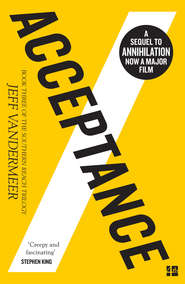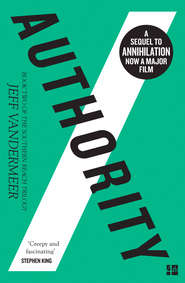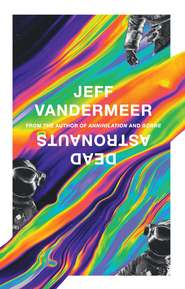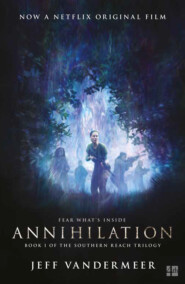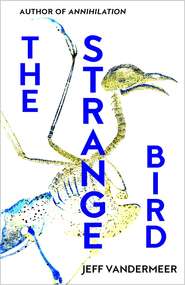По всем вопросам обращайтесь на: info@litportal.ru
(©) 2003-2024.
✖
Borne
Автор
Год написания книги
2018
Настройки чтения
Размер шрифта
Высота строк
Поля
It got worse after that, not better. It got worse and kept getting worse until we didn’t even have the camps. It was just us, trudging across a land that held pockets of sanity and insanity both. Kindness and cruelty, sometimes from the same source. My father carried a knife in his boot and took turns with my mother holding on to a small revolver. We were as likely to come across burned and half-buried bodies in a ditch as a farmer and his sons armed with shotguns. Once, a grinning man invited us into his house and tried to rape my mother. My father had a scar across his left arm after that and we would stay off the main roads.
We starved at times rather than join the ranks of those marching toward an illusion, that slow, tired trudge. The back roads we took would become reduced to gray snakes against the blackness of forest or scrubland. In the distance, lights of a cabin or of a town would invoke in us dread and then caution, followed by avoidance.
Months after we had stopped believing in refuge, there appeared on a distant hill a city so miraculous it looked at dusk like a huge crystal chandelier that had fallen to Earth or a stranded ocean liner listing on its side. I could not keep my eyes off of it and pleaded with my parents to go there. They ignored me. They were right to. It lay on our horizon for several days, and during the night of the ninth day, having rounded its eastern side, still fighting our way through forest and plain, it caught fire, all of those sparkling lights taken up in a huge conflagration that burned the darkness away for miles around.
There came the blinking red hazard lights of bombers flying away from the city, and we so far down below marveled at the sight because it had been years since we had seen a plane of any kind. Something so old and so new. We wondered if airplanes might mean some resurgence, that some resurrection of a normal life might be upon us. But it was just an illusion. It meant nothing.
We made our way quickly more eastward still, fearing the exodus of the survivors as if it were a wave that might drown us, and yet they were no different than us. Then came the thick, powdery black smoke during the days, gathered up in the sooty rain that fell, and out of the ground came writhing worms and rabbits and other dying things.
Soon we would think back kindly on those days. But throughout it all, my parents held on to hope, kept trying to find a safe place. They would not give up. They never gave up. I knew that, even now that they were gone.
There was more that I told Borne, but I can’t bring myself to write it, because it is too terrible to put into words. And it pushes up against the one thing I couldn’t remember: how I came to this city, what had happened to my parents. My last memories from before the city were of floods and makeshift rafts and the expanding silence of people dead or dying in the water—and a hint of land on the horizon. My last memories were of going down for a second, third time, my lungs full of silt.
But when I came to, I was in the city, walking. I was walking by the river as if I had always been there.
Alone.
WHAT I DID NEXT, EVEN THOUGH IT MIGHT HAVE BEEN WRONG
For every clear-eyed view of my room that took in the lack of running water, the mold that had begun its war against the constellations of fireflies embedded in my ceiling, the half-collapsing wall with the window that looked out on a mountain of dirt … for all of that, and the scenes out on the streets of one tired and dirty person fighting another person who was just as tired and dirty over a scrap the old world would have found useless or disgusting … for all of that, I still could imagine a time when the small things we used to love might be returned to us.
“It’s just me,” Borne said and for a long time huddled on my bed, trying to recover, I didn’t answer. Not really. I just spewed words at him, lost and rambling. Wick appeared next to him from time to time and winked out again. Sometimes I would feel Wick’s arms around me. Sometimes I would see him staring at me with an expression of guilt and, I thought, of suspicion.
Was the suspicion because of Borne? Since the attack, Borne had changed again. He had abandoned the sea-anemone shape in favor of resembling a large vase or a squid balanced on a flattened mantel. The aperture at the top had curled out and up on what I chose to interpret as a long neck, sprouting feathery filaments, which almost seemed like an affectation. The filaments, with a prolonged soft sigh, would crowd together and then pull apart again like bizarre synchronized dancers. He was tall enough now that the top of him loomed a good two feet above the bed. Colors still flitted across his body, or lazily floated in shapes like storm clouds, ragged and layered and dark. Azure. Lavender. Emerald. He frequently smelled like vanilla.
As I lay on my side and stared at him—half curious, half afraid—I could see that Borne had developed a startling collection of eyes that encircled his body. Each eye was small and completely different from the others around it. Some were human—blue, black, brown, green pupils—and some were animal eyes, but he could see through all of them. They perplexed me because I didn’t know what they meant. I decided to think of it as a kind of odd adornment, Borne’s equivalent of a belt.
When Borne saw me staring at him, he would make a sound like the startled clearing of a throat, and his flesh would absorb all of the eyes except two, which would migrate higher on his body and away from each other. Sometimes they would slip back down to his hips, but once in position on his torso they became larger, took on a sea-blue color, and grew long, dark lashes; they moved independent of each other.
He must have thought he looked more normal that way.
¤
On the sixth day, I felt more lucid, woke with only a slight fuzziness. Wick had gone out again, reluctant, to conduct business. He hadn’t found my attackers, and I knew he probably never would. We hadn’t talked again about what had happened, or about much of anything. I even pretended to be asleep when he came in. I had energy only for Borne.
From my bed I asked Borne a question. It was really the only question—a dangerous question to match a dangerous mood. I was still on the worm-drugs and I wanted to be of use, to do anything but just lie there.
“What are you?” My heart beat faster, but I wasn’t afraid. Not really.
“I don’t know,” Borne said in a rough yet sweet tone. For a confused moment I thought he’d spoken in the voices of both my parents at once. Then, sincere and eager: “Do you know what you are?”
I ignored him. “Let’s play a game to figure out what you are.”
Borne went quiet for a second and his colors dimmed. Then he flared up.
“Okay,” he said. “Okay!”
“Then you have to be honest with me.”
“Honest.” Turning the word over in his head.
“Tell the truth.”
A ripple of vibrant purple traveled across his skin.
“Honest. I can be honest. I am honest. Honest.”
Had I upset him or triggered some other emotion, or was he just testing out the word?
“You know a lot about me,” I ventured. “But I know nothing about you. The game is about questions. Will you answer some questions?”
“I will answer questions,” Borne said, uncertain. Did he understand the word question?
“Are you a machine?” I asked.
“What is a machine?”
“A made thing. A thing made by people.”
This puzzled Borne, and it was a long while before he said, “You are a made thing. Two people made you.”
“I mean something made of either metal or of flesh. But not through natural biological means.”
“Two people made you. You are made of flesh,” Borne said. He seemed agitated.
“Why didn’t you save me from those boys?”
“Save?”
“Rescue. Help. Stop them from hurting me.”
There came a long pause and everything about Borne shut down until he was just a gray shape. Even the eyes went away.
Then the colors came back in an explosion of reds and pinks and a roiling, turbulent green. The eyes popped up as a rotating halo embedded in the skin near the top of his aperture. “But I did help! I helped! I helped Rachel. I helped.” This said in an anguished tone.
I tried to control the trembling of my voice. The spirit of Mord filled me up.
“Those boys hurt me for hours.” I spat out the words. “Those boys did that and you did nothing. They hurt me badly. And you could have done something.”
Silence again, then, in a whisper, “I could not. I did not. Help. Until.”
“Until what?”
“Until I knew them.”
I realized knew wasn’t the word he meant. That the word he sought might not exist, that he was trying, perhaps, to tell me two or three things at once.
“Knew them how?”






